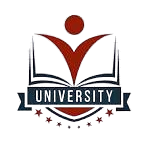Skip to content
How to Excel Academically at a Canadian University
Achieving academic excellence at a Canadian university requires more than attending classes and completing assignments. It involves adopting effective study techniques, managing time efficiently, seeking support when needed, and maintaining a balanced lifestyle. Here’s a detailed guide to help you excel academically and make the most of your university experience in Canada.
1. Develop Effective Study Habits
Successful students often attribute their achievements to cultivating effective study habits. Consider the following tips to enhance your study routine:
-
Create a Study Schedule: Plan dedicated study sessions each week, balancing coursework, assignments, and exam preparation.
-
Set Realistic Goals: Break down academic tasks into manageable goals and deadlines to stay organized and motivated.
-
Utilize Active Learning Techniques: Engage actively with course materials through summarization, concept mapping, and self-testing to reinforce understanding.
-
Minimize Distractions: Find a quiet and conducive study environment free from distractions such as noise, social media, and electronic devices.
-
Take Regular Breaks: Incorporate short breaks during study sessions to maintain focus and prevent mental fatigue.
2. Master Time Management Skills
Time management is critical for academic success and personal well-being. Implement these strategies to effectively manage your time:
-
Prioritize Tasks: Identify and prioritize tasks based on deadlines, importance, and complexity.
-
Use a Planner or Digital Calendar: Organize academic and personal commitments, including classes, assignments, exams, and extracurricular activities.
-
Set Time Limits: Allocate specific time slots for each task or subject to maintain productivity and meet deadlines.
-
Practice Procrastination Management: Break tasks into smaller, manageable steps to overcome procrastination and enhance productivity.
-
Adapt and Adjust: Review and adjust your schedule regularly to accommodate unexpected events or changes in workload.
3. Engage with Course Materials and Resources
Maximize your learning experience by actively engaging with course materials and utilizing available resources:
-
Attend Lectures and Tutorials: Participate actively in class discussions, take comprehensive notes, and clarify concepts with instructors.
-
Utilize Library Resources: Access textbooks, journals, research databases, and study spaces offered by the university library.
-
Join Study Groups: Collaborate with peers to review course materials, discuss challenging topics, and prepare for exams.
-
Seek Academic Support Services: Take advantage of tutoring services, writing centers, and academic workshops to improve study skills and academic performance.
-
Explore Online Learning Tools: Use educational apps, online platforms, and multimedia resources to supplement classroom learning and enhance understanding.
4. Build Relationships with Professors and Advisors
Developing relationships with professors and academic advisors can provide valuable support and guidance throughout your university journey:
-
Attend Office Hours: Schedule meetings with professors to discuss course content, seek clarification on assignments, and receive feedback on academic progress.
-
Seek Mentorship: Identify professors or advisors who can mentor you academically and professionally, offering insights and recommendations for career development.
-
Participate in Research Opportunities: Explore research assistantships, projects, or internships under faculty supervision to gain hands-on experience and expand your academic portfolio.
-
Consult Career Services: Utilize career services for guidance on internship placements, job search strategies, resume building, and interview preparation.
5. Maintain a Healthy Work-Life Balance
Balancing academic commitments with personal well-being is essential for long-term success and overall happiness:
-
Prioritize Self-Care: Allocate time for physical exercise, adequate sleep, nutritious meals, and relaxation activities to manage stress and maintain mental health.
-
Participate in Extracurricular Activities: Engage in clubs, sports, volunteer work, or cultural activities to foster personal interests, social connections, and leadership skills.
-
Practice Time for Reflection: Reflect on your academic goals, achievements, and areas for improvement to enhance personal growth and motivation.
-
Seek Support When Needed: Reach out to university counseling services, health professionals, or support networks for assistance with mental health concerns, stress management, or personal challenges.
6. Enhance Communication and Critical Thinking Skills
Developing strong communication and critical thinking skills can enhance academic performance and professional success:
-
Write Clear and Concise Essays: Practice writing skills through assignments, essays, and research papers, focusing on clarity, structure, and argumentation.
-
Participate in Debates and Discussions: Engage in debates, class discussions, and presentations to articulate viewpoints, analyze information, and develop persuasive arguments.
-
Expand Cultural Awareness: Embrace diversity, cultural perspectives, and global issues through coursework, international student exchanges, and cross-cultural interactions.
-
Stay Informed: Stay updated on current events, research developments, and trends in your field of study through academic journals, conferences, and seminars.
7. Prepare for Exams and Assessments Effectively
Excel in exams and assessments by adopting strategic preparation strategies:
-
Review Course Materials Regularly: Consolidate learning by reviewing lecture notes, textbooks, and supplementary materials throughout the semester.
-
Practice Past Exams: Familiarize yourself with exam formats, types of questions, and time constraints by practicing past exams or sample questions.
-
Create Study Guides: Develop concise study guides or outlines summarizing key concepts, formulas, and theories for quick reference.
-
Form Study Groups: Collaborate with peers to quiz each other, discuss difficult topics, and share study resources to enhance exam preparation.
-
Manage Test Anxiety: Practice relaxation techniques, maintain a positive mindset, and adopt effective test-taking strategies to manage exam stress and perform confidently.
8. Seek Opportunities for Personal and Professional Development
Explore opportunities for personal growth, skill development, and career readiness:
-
Attend Workshops and Seminars: Participate in workshops, seminars, and conferences to develop skills in leadership, communication, and professional networking.
-
Volunteer and Internships: Gain practical experience through volunteer work, internships, or co-op programs relevant to your field of study and career aspirations.
-
Build a Professional Network: Network with alumni, industry professionals, and potential employers through career fairs, networking events, and LinkedIn.
-
Develop Transferable Skills: Develop transferable skills such as teamwork, problem-solving, and adaptability through academic projects, group assignments, and extracurricular activities.
-
Plan for Graduate Studies or Career Pathways: Research graduate programs, career pathways, and post-graduation opportunities to align academic achievements with long-term goals.
Conclusion
Achieving academic excellence at a Canadian university requires dedication, proactive planning, and effective utilization of resources. By developing effective study habits, mastering time management skills, engaging with course materials and professors, maintaining a healthy work-life balance, enhancing communication and critical thinking skills, preparing strategically for exams, and seeking opportunities for personal and professional development, students can excel academically and thrive during their university experience in Canada.
This SEO article provides a comprehensive guide to excelling academically at a Canadian university, offering practical tips and strategies to help students maximize their academic potential and achieve their educational goals effectively.

FAQs:
1. What are some effective study habits for succeeding academically in Canadian universities?
Effective study habits include:
-
Creating a Study Schedule: Plan regular study sessions and allocate time for each subject.
-
Active Learning: Engage actively with course materials through summarization, concept mapping, and self-quizzing.
-
Minimizing Distractions: Find a quiet study environment free from distractions like social media.
-
Taking Breaks: Incorporate short breaks during study sessions to maintain focus and prevent burnout.
2. How can time management skills help in achieving academic success?
Time management skills are crucial for balancing coursework, assignments, and extracurricular activities:
-
Prioritizing Tasks: Identify and prioritize tasks based on deadlines and importance.
-
Using a Planner: Organize academic and personal commitments to stay organized.
-
Setting Goals: Break down tasks into manageable goals and deadlines to stay on track.
3. What resources are available at Canadian universities to support academic success?
Canadian universities offer various resources to support academic success, including:
-
Library Services: Access to textbooks, research databases, study spaces, and librarian assistance.
-
Tutoring Centers: Support for academic subjects, writing skills, and exam preparation.
-
Career Services: Guidance on internships, resume building, and career development.
-
Counseling Services: Mental health support, stress management, and personal counseling.
4. How can students build relationships with professors and advisors?
Building relationships with professors and advisors can provide valuable support and mentorship:
-
Attending Office Hours: Schedule meetings to discuss course materials, assignments, and career advice.
-
Seeking Mentorship: Identify professors or advisors for academic guidance and professional development.
-
Participating in Research: Explore research opportunities under faculty supervision for hands-on learning.
5. What strategies can students use to maintain a healthy work-life balance?
Maintaining a healthy balance between academics and personal well-being is essential:
-
Prioritizing Self-Care: Allocate time for exercise, sleep, nutritious meals, and relaxation activities.
-
Engaging in Extracurriculars: Participate in clubs, sports, and cultural activities to foster personal interests and social connections.
-
Seeking Support: Utilize university counseling services and support networks for mental health and stress management.
6. How should students prepare for exams and assessments effectively?
Preparing for exams involves strategic planning and preparation:
-
Regular Review: Review course materials consistently throughout the semester.
-
Practice Tests: Familiarize yourself with exam formats and types of questions by practicing past exams.
-
Creating Study Guides: Develop concise summaries of key concepts and formulas for quick reference.
-
Collaborating with Peers: Form study groups to quiz each other and discuss challenging topics.
7. What are transferable skills, and how can students develop them?
Transferable skills are abilities that are valuable across various disciplines and industries:
-
Teamwork: Collaborate effectively with peers on group assignments and projects.
-
Problem-Solving: Analyze and resolve academic challenges and real-world problems.
-
Communication: Articulate ideas clearly in essays, presentations, and class discussions.
-
Adaptability: Adjust to new academic environments, courses, and learning methods.
8. How can students enhance their critical thinking skills?
Enhancing critical thinking skills involves:
-
Analyzing Information: Evaluate sources, arguments, and evidence critically.
-
Questioning Assumptions: Challenge assumptions and consider alternative perspectives.
-
Formulating Arguments: Develop well-reasoned arguments based on evidence and logical reasoning.
-
Engaging in Debates: Participate in debates and discussions to articulate viewpoints and defend ideas.
9. What should students do if they need academic or personal support?
Students should reach out to university resources such as:
-
Academic Advisors: For guidance on course selection and academic planning.
-
Tutoring Centers: For assistance with specific subjects and study skills.
-
Counseling Services: For confidential support with mental health concerns, stress management, and personal challenges.
-
Peer Support Groups: Join groups or clubs for peer support and social connections.
10. How can international students excel academically in Canadian universities?
International students can excel academically by:
-
Adapting to Canadian Academic Culture: Familiarize yourself with expectations, study methods, and cultural norms.
-
Utilizing Language Support Services: Improve language proficiency through language classes and support services.
-
Engaging in Cultural Exchange: Participate in cultural events, clubs, and activities to integrate into the university community.
-
Seeking Support: Utilize international student services for assistance with visas, housing, and academic integration.

Conclusion
Excelling academically at a Canadian university requires a combination of effective study habits, time management skills, utilization of resources, engagement with professors, maintenance of well-being, and development of critical skills. By implementing these strategies and seeking support when needed, students can maximize their academic potential and achieve success during their university experience in Canada.
These FAQs provide valuable insights and guidance to help students navigate academic challenges and optimize their learning experience at Canadian universities, complementing the comprehensive SEO article on achieving academic excellence.



